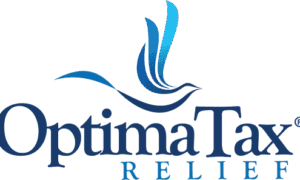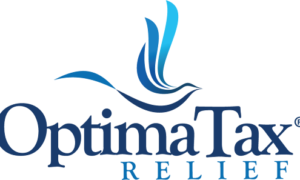As tax season approaches, scammers become increasingly inventive in their attempts to deceive unsuspecting taxpayers. The Internal Revenue Service (IRS) and its Security Summit partners have recently issued a warning about a new scam involving an unusual delivery service mailing. Fraudsters are targeting taxpayers, attempting to trick them into sending sensitive information, such as photos and bank account details. In this article, Optima Tax Relief explores the details of the new scam and provides essential tips on how to protect yourself from falling victim to such schemes.
Taxpayers receive a letter
In this scam, taxpayers receive a letter that appears to be from an unfamiliar delivery service. Inside the letter, recipients find a phony IRS notice stating that a tax refund, sometimes referred to as “unclaimed property” in the letter, is awaiting delivery and requires additional information to complete the process.
The scammers then request recipients to provide various details, including photographs of their driver’s license. They might claim that this information is necessary to verify the recipient’s identity or ensure the proper delivery of the refund. It also requests information including cell phone number, banking information, Social Security number, and bank account type.
Luckily, there are plenty of red flags in the phony letter that you can recognize in order to prevent being scammed. Some things to look out for are:
Incorrect use of punctuation in the letter
Unusual mixture of fonts in the letter
Uses terms like “unclaimed property”
States that the tax extension deadline is October 17th when it is in fact October 16th and even later for some filers
Professionals and IRS officials
As tax professionals and IRS officials continue to work diligently to combat such scams, it is essential for taxpayers to stay vigilant and take precautionary measures. Here are some vital tips to safeguard yourself from falling victim to this or any other tax-related scam:
Verify the Sender: Be cautious when receiving unsolicited mail or packages from unfamiliar delivery services. Verify the legitimacy of the sender by cross-checking the contact details provided with official sources, such as the official website or customer service helpline.
Don’t Share Sensitive Information: Avoid sharing personal information, such as Social Security numbers, bank account details, or photographs of identification documents, with unknown entities. Reputable organizations will not request such sensitive information through unexpected mail.
Contact the Delivery Service: If you receive a suspicious package, contact the purported delivery service directly using their official contact information. Verify if the package is genuine and whether they have attempted to deliver any parcels to your address.
Report Suspicious Activity: If you believe you have received a scam letter or package, report the incident to the IRS and local law enforcement agencies. Prompt reporting can aid in the investigation and protect others from falling prey to the same scam.
Say Informed
Keep abreast of the latest scams and fraud alerts issued by the IRS and other official sources. Being informed about potential threats will help you stay one step ahead of scammers. The IRS and Security Summit publish an annual report called the IRS Dirty Dozen list, which details the most prominent tax scams circulating. You can find this report on the IRS website.



































